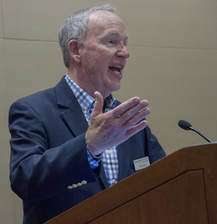
This Saturday evening, the Mandela Washington Fellowship for Young African Leaders here at K-State’s Staley School of Leadership Studies will be wrapping up a six-week Civic Leadership Institute. The Young African Leaders Initiative is facilitated through the U.S. State Department with the goal of helping develop the next generation of leaders in Africa. In all, there are 1,000 leaders studying at colleges and universities around the U.S. this summer who will bring their learning and newly-established networks back to their countries and continue to make change in their communities upon their return home. For the second straight year, the Staley School has had the pleasure of hosting this Fellowship. Twenty-five young but experienced Sub-Saharan African leaders, representing twenty three countries, make up the group. The time has been filled with class work and training sessions, interactions with local public, private, and nonprofit sector leaders, participation in some local civic engagement efforts, and making the most of a variety of experiences from Kansas City to Wichita. Building off our experience from last year, this year's program has not only been well-received but has proven once again to be of significant value.
As alluded to in my welcoming remarks six weeks ago, I made it clear then that the learning would go both ways, that we—here at K-State and in Kansas—would benefit significantly as well. That has certainly played out in real time. I was particularly struck by the candid comments from our visitors at a forum for local elected officials to share and answer questions. Just one example made clear by a young woman, Folasade Bamisaye from Nigeria, who shared during the forum that she was amazed that this country taxed feminine hygiene products. Here in this country there is little or not even discussion about this issue, much less action. So there is much that can be gained from a dialogue and exchange of ideas on the future.
As alluded to in my welcoming remarks six weeks ago, I made it clear then that the learning would go both ways, that we—here at K-State and in Kansas—would benefit significantly as well. That has certainly played out in real time. I was particularly struck by the candid comments from our visitors at a forum for local elected officials to share and answer questions. Just one example made clear by a young woman, Folasade Bamisaye from Nigeria, who shared during the forum that she was amazed that this country taxed feminine hygiene products. Here in this country there is little or not even discussion about this issue, much less action. So there is much that can be gained from a dialogue and exchange of ideas on the future.
Each of the Mandela Fellows is engaged across a wide array of issues, including: youth development, public health, gender equity, grassroots organizing, agricultural sustainability, and disability rights. The benefit of having six weeks is having the time to work on specific challenges they had in their leadership experiences in Africa. Naturally they all, as we do, want better ideas in general on how to lead effectively and mobilize people to address challenges. But they also focused on a couple specifics. They wanted to learn more about developing partnerships to work towards systemic change. And one piece in particular, that we all need to focus on, is the importance of utilizing volunteers more successfully.
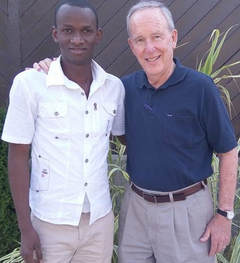
One of the unique aspects of this program is the one-on-one mentoring that takes place. Last year, my partner was Abdoul Salam Diallo from Guinea (pictured to the left). Our natural link was his family’s tie to milk cows, so as would be expected that put us together, but from there, our relationship grew to include more areas of discussion around his work. My partner this year is Ahmed M. Afi from Somali. Our connection is his direct interest in public service, and he has made some progress in that regard. His ambitions include being a national leader for Somalia, and given his knowledge, passion, and political savvy, I’m not going to be surprised at all if he achieves his goals. I certainly look forward to staying in communication, continuing to share lessons from my experiences, and knowing just how his plans are going.
Now, here is the not so good news. This program, along with many others, falls under the banner of “Foreign Aid” or investments in diplomacy. As you may know, these types of investments are currently under attack by the President, and it will be up to the Congress to—as our country has historically done—appreciate the value of investing in programs like this and other aid efforts. Stronger, well-prepared leaders for the future of Africa will help empower and mobilize citizens to address a range of issues that exist throughout the continent. Meanwhile, the ability to address community needs such as food insecurity not only helps these countries build for the future, but it’s also absolutely in our national security interest. Hungry people can easily be the target of self-serving leaders who prey on the needy to the benefit of themselves and, in the process, create an environment that is ripe for terrorist activity.
It has been an absolute joy to spend time with the Mandela Fellows during these past six weeks, and most importantly, I look forward to the impacts that their leadership will make in the effort to build a healthier, happier, and more peaceful world for all.
Learn about each of the Mandela Fellows on the Staley School's blog or see more pictures on Facebook.
It has been an absolute joy to spend time with the Mandela Fellows during these past six weeks, and most importantly, I look forward to the impacts that their leadership will make in the effort to build a healthier, happier, and more peaceful world for all.
Learn about each of the Mandela Fellows on the Staley School's blog or see more pictures on Facebook.
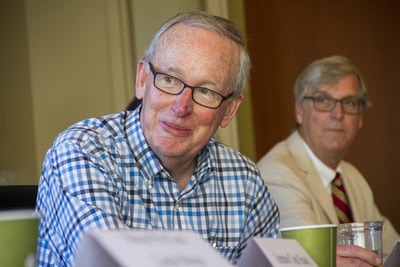
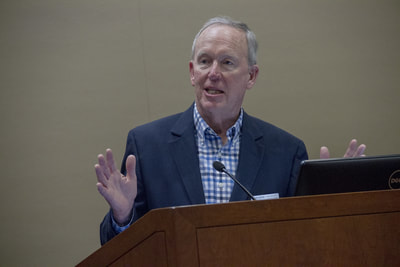
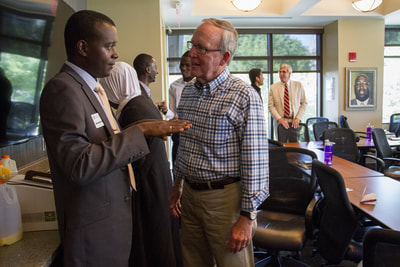
 RSS Feed
RSS Feed